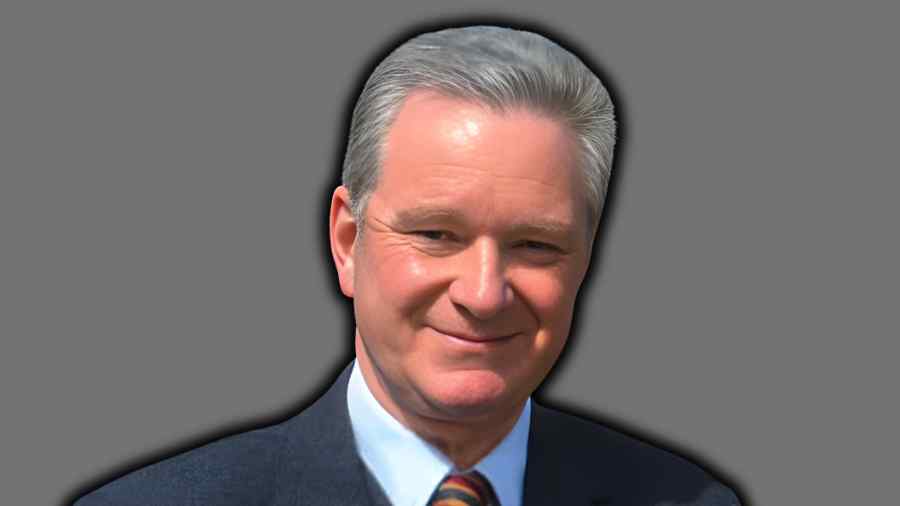Malcolm Colquhoun: The Modern Guardian of Scotland’s Historic Legacy

Malcolm Colquhoun is a name that resonates deeply with the proud heritage of Scotland, embodying both the timeless traditions of the Highlands and the evolving spirit of modern leadership. As the 9th Baronet of Luss and the 31st Chief of Clan Colquhoun, Sir Malcolm Rory Colquhoun stands as a symbol of continuity, responsibility, and progressive stewardship. His role extends far beyond that of a noble title; it represents a lifelong dedication to preserving Scottish heritage while shaping it for future generations.
Early Life and Family Heritage
Sir Malcolm Rory Colquhoun was born on 20 December 1947 into one of Scotland’s most distinguished families. The Colquhouns are among the oldest Highland clans, tracing their roots to the early 13th century. The family’s ancestral lands lie around Loch Lomond, particularly in the village of Luss, which remains the heart of their legacy. His father, Sir Ivar Iain Colquhoun, served as the 8th Baronet of Luss and passed on not just the title but a deep sense of duty toward heritage preservation.
From an early age, Malcolm Colquhoun was exposed to the responsibilities that came with nobility. The Colquhoun family has always been closely linked to Scotland’s history, playing crucial roles in regional governance, social development, and cultural preservation. The young Malcolm grew up in an environment where history was not just studied but lived daily — in the castles, lochs, and forests of his family’s estate.
The Lineage of Leadership
The Colquhoun baronetcy, established in 1786, carries centuries of honour and service. It has survived wars, political shifts, and economic changes, adapting to each era with remarkable resilience. When Sir Malcolm succeeded his father in 2008, he inherited not only the baronetcy but also the role of Chief of Clan Colquhoun.
This transition marked the beginning of a new chapter for the clan. Under his leadership, the Colquhoun family embraced modernisation while maintaining their historical roots. Clan gatherings, cultural events, and global outreach programmes have flourished under his guidance, helping connect descendants and supporters across continents.
Stewardship of the Luss Estates
One of Sir Malcolm’s most notable achievements lies in his stewardship of the Luss Estates Company, a cornerstone of the family’s economic and cultural presence. The estate encompasses thousands of acres of land surrounding the picturesque Loch Lomond — one of Scotland’s most visited natural landmarks.
Sir Malcolm has overseen significant efforts to modernise estate operations without compromising the natural beauty of the region. His leadership emphasises sustainable development, environmental responsibility, and community engagement. The estate has diversified into hospitality, eco-tourism, renewable energy, and conservation projects. These ventures not only preserve the environment but also create employment opportunities for local residents, reinforcing the estate’s integral role in the region’s economy.
His approach to management demonstrates foresight and compassion. Recognising that sustainability is vital for both the environment and local livelihoods, he has supported small-scale hydroelectric projects, forestry conservation, and biodiversity initiatives. The estate’s businesses — from local accommodation to agricultural ventures — reflect his belief that tradition and innovation can coexist harmoniously.
Champion of Conservation and Sustainability
Sir Malcolm Colquhoun’s environmental vision is one of his defining qualities. His leadership embodies a long-term perspective — one that looks beyond financial gains to the broader well-being of the land and its people. The Luss Estates have adopted practices that promote renewable energy, wildlife protection, and sustainable tourism.
By prioritising eco-friendly projects, Sir Malcolm has positioned Luss as a model of environmental responsibility in Scotland. The estate has worked closely with conservation groups to preserve habitats, protect species, and manage natural resources responsibly. Visitors to the area often remark on how the beauty of the landscape feels untouched, yet it thrives under careful, modern management.
His philosophy aligns with the growing global recognition of sustainability’s importance. However, Sir Malcolm’s approach is not driven by trends but by genuine respect for nature — a respect deeply embedded in Highland culture. The land, for him, is more than property; it is a living heritage to be safeguarded for future generations.
Preserving Scottish Heritage and Clan Identity
As Chief of Clan Colquhoun, Sir Malcolm carries the torch of a proud lineage. Clans were once the backbone of Scottish society, embodying family loyalty, honour, and a shared sense of purpose. While the feudal structure of the past has evolved, the cultural significance of clans remains vital to Scottish identity.
Under his guidance, Clan Colquhoun has seen a resurgence in global engagement. He has encouraged descendants worldwide to reconnect with their Scottish roots, often welcoming visitors to Luss — the clan’s traditional seat — for cultural gatherings, history tours, and traditional celebrations. The Clan Colquhoun International Society plays a central role in fostering this global connection, promoting cultural exchange and unity among members.
Through these efforts, Sir Malcolm has ensured that the clan’s history continues to inspire new generations. His dedication to storytelling, heritage events, and clan preservation underscores his belief that understanding one’s past strengthens one’s future.
Balancing Tradition and Modernisation
What distinguishes Sir Malcolm from many modern estate owners is his pragmatic approach to blending old and new. He recognises that tradition cannot survive in isolation from progress. Therefore, he has championed initiatives that make historical assets relevant in today’s context.
Under his vision, Luss has become more than just a historic village; it has evolved into a vibrant hub that welcomes tourists, scholars, and families alike. The estate’s developments in hospitality and tourism have introduced modern facilities without sacrificing authenticity. Visitors can experience traditional Scottish life, explore heritage trails, and enjoy nature while contributing to the local economy.
Moreover, Sir Malcolm’s focus on education and community collaboration reflects his commitment to empowering future leaders. By supporting local schools, charities, and development programmes, he ensures that the values of leadership and service — so central to the Colquhoun legacy — remain alive in younger generations.
Personal Life and Values
While public attention often centres on his titles and responsibilities, those who know Sir Malcolm describe him as a man of integrity, modesty, and foresight. His quiet yet determined leadership style mirrors the strength of his ancestors. He values loyalty, heritage, and innovation — qualities that have defined his life’s work.
His family continues to play an active role in maintaining the estate’s vision. Together, they have transformed the Luss Estates into a model of responsible stewardship. Beyond the boundaries of his land, Sir Malcolm is also respected for his contributions to Scotland’s broader cultural and environmental conversations.
Legacy and Future Vision
Sir Malcolm Colquhoun’s leadership is not confined to preserving history; it is about ensuring its relevance in the 21st century. His ability to unite heritage, ecology, and economic growth serves as a blueprint for sustainable estate management.
Looking ahead, his vision remains clear: to keep Luss and the Clan Colquhoun thriving in harmony with nature and community. As Scotland continues to redefine its identity in a changing world, figures like Sir Malcolm provide stability, wisdom, and inspiration. His legacy will likely be remembered not only for maintaining tradition but for reimagining it for modern times.
Conclusion
Malcolm Colquhoun stands as a bridge between Scotland’s past and its future. As a baronet, clan chief, environmental steward, and community leader, he embodies the essence of responsible heritage management. His life’s work reflects a profound understanding of what it means to belong — to one’s land, one’s people, and one’s history.
Through his stewardship of the Luss Estates and his leadership of Clan Colquhoun, he has shown that honouring tradition need not mean resisting change. Instead, it can mean evolving with purpose and preserving with wisdom. Sir Malcolm Colquhoun’s enduring impact lies in his ability to make history breathe again — not as a relic of the past, but as a living, thriving legacy for generations to come.



